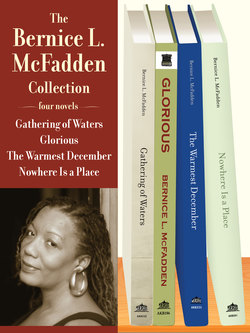Читать книгу The Bernice L. McFadden Collection - Bernice L. McFadden - Страница 21
На сайте Литреса книга снята с продажи.
ОглавлениеChapter Twelve
Just a month after he had taken Melinda out into the field, she came to him weeping.
“I think I’m pregnant.”
Even though her tears were real and flowing, and the distress in her voice was clear, Cole still asked, “You joking?”
“No, Cole.”
He kicked a stone, fumbled with the lobe of his left ear, and mumbled, “You know anyone who can get rid of it?”
Melinda gasped, “Cole!”
“You’re not thinking about keeping it, are you?”
Melinda shrugged.
“You can’t be thinking that, Melinda. You can’t. Your father will kill me!”
And then she said the words that changed Cole Payne’s life forever: “Well, not if we get married.”
The statement was filled with so much hope and longing that it made Cole feel sick.
“Married?”
Cole always assumed that he would marry for love and not circumstance. But he supposed he could do a lot worse than Melinda, who was monied, educated, and weak in the knees for him.
His female prospects were many—but all cut from the same poor cloth as he was. Cole could have stomached a life of poverty with Sissy by his side, but without her, it seemed a senseless and ridiculous choice.
“I guess,” he uttered, “marriage would be the right thing to do.”
They told his parents first, and then hers.
Arthur, who had never laid a hand on any of his children, grabbed Melinda roughly by the shoulders and shook her until his wife cried out for him to stop.
The wedding was a small affair, held in the Thompson’s home. Cole’s mother could have slashed her wrists with the envy she felt upon stepping into that house.
For a wedding gift, Barbara gave them a piece of framed needlepoint which read, Happy Family, in bright pink, green, and blue thread.
Arthur and Connie’s gift was obviously much more extravagant: a deed to land, a store, and a house located miles away from Sidon, here with me, Money Mississippi.
Years later, as Cole Payne sat reading the evening paper on the veranda of his home on Candle Street, he heard the melody he’d mourned for decades.
“Morning, Mr. Payne.” A Negro woman smiled up at him as she walked toward the rear of the house. Cole peered over the top of the newspaper. The woman looked familiar, but he couldn’t place her.
As if reading his thoughts she said, “I’m Reverend Hilson’s wife.”
Cole folded the paper. “Oh,” he grunted, and then tilted his chin toward the wicker basket she carried. “What you got there?”
“I made Ms. Melinda some johnnycakes,” Doll sang.
“Is that right?” Cole offered.
“You know, my johnnycakes taste like a little piece of heaven,” Doll offered with a laugh as she rounded the corner of the house.
